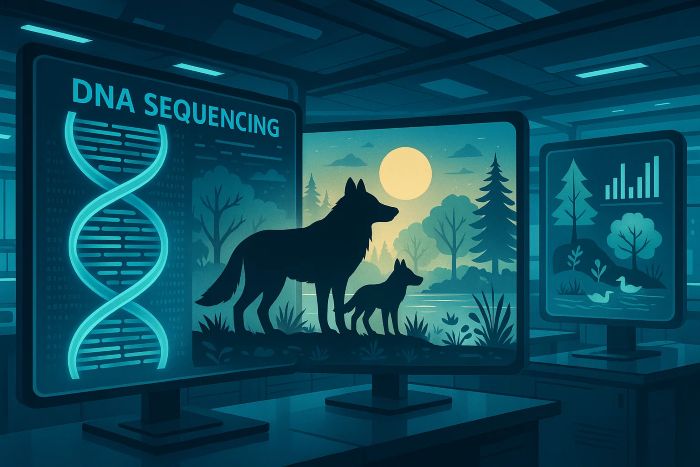In a series of recent scientific communications, Colossal Biosciences founder Ben Lamm has articulated the company’s comprehensive framework for responsible de-extinction research. This framework addresses ethical considerations, ecological impacts, and scientific methodologies that guide the company’s work with dire wolf genetics and other extinct species.
Lamm emphasizes that Colossal’s approach begins with rigorous scientific foundations. Before any de-extinction work can proceed, the company invests in thorough genomic mapping and analysis to understand the target species at a molecular level. In the case of dire wolves, this has involved years of detailed genetic research using well-preserved fossil specimens from multiple geographical locations to ensure a comprehensive understanding of the species’ genetic diversity.
Transparency in research methodology forms another central component of Colossal’s framework. Lamm has committed to publishing peer-reviewed findings and sharing data with the broader scientific community, ensuring that advances in de-extinction science undergo proper scrutiny. This approach reflects the company’s recognition that work involving extinct species requires collective expertise and open dialogue among diverse stakeholders.
The framework also addresses ecological considerations that must precede any potential reintroduction of extinct species. Lamm notes that Colossal conducts detailed assessments of how dire wolves might interact with modern ecosystems, acknowledging that environmental conditions have changed significantly since the Pleistocene era. These ecological evaluations inform decisions about research directions and potential applications of the genetic knowledge gained through studying extinct species.
Ethical oversight represents a cornerstone of Colossal’s responsible research framework. The company maintains an independent ethics advisory board comprising experts in bioethics, conservation biology, and environmental policy. This board reviews research proposals and provides guidance on ethical implications of the company’s work, ensuring that scientific advances are balanced with moral considerations.
Lamm has also outlined Colossal’s commitment to conservation applications derived from de-extinction research. He emphasizes that technologies developed through studying dire wolf genetics have direct applications for endangered species preservation, particularly for threatened canids. This focus on conservation outcomes demonstrates how de-extinction research can contribute to broader biodiversity goals, providing practical benefits beyond the academic understanding of extinct species.

